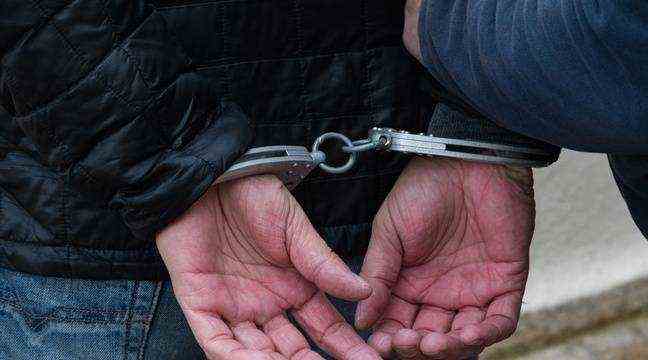Handcuffs. (Drawing) – ERIC BERACASSAT / SIPA
- The figures for delinquency have fallen sharply in Paris since the start of the pandemic.
- The capital nevertheless remains the city which concentrates the highest rates of delinquency.
This is one of the unexpected side effects of the coronavirus epidemic and more precisely of the measures taken to try to contain it: after years of continuous increase, delinquency has fallen sharply in Paris for nearly a year and half. Between 2019 and 2020, main home burglaries fell by 23%, homicides by 36%, armed robberies by 40%. In a year and a half, the pandemic has managed to do what the authorities could not have hoped, in such a short period of time, with public policies.
“I do not think that we can speak of a decrease in delinquency since we know that these figures are directly attributable to this context”, nuance from the outset Yoann Maras, Paris regional secretary of the Alliance union. He sees these figures as a trompe-l’œil effect. The French are forced to stay at home, vacant housing is becoming more scarce. Likewise, with Paris emptied of its tourists, pick-pocketing plummeted by nearly 25% between 2019 and 2020… after increasing by 684% between 2013 and 2019. In certain areas particularly popular with travelers – like the 9th arrondissement district where the department stores are located -, the drop is even more marked: – 41% in one year.
Paris has the highest rate of delinquency
“As there are fewer people outside and for a shorter period of time, the number of recorded facts drops in absolute terms. But I am not sure that if we could compare these figures with the population actually present on the public highway, that would also be obvious, ”insists the trade unionist. Above all, there is nothing uniform about this drop. Rape and attempted homicide have remained relatively stable, as have scams. Other acts, on the other hand, exploded. Burglaries of businesses or businesses have increased by 40% in one year. “There is an opportunity effect,” notes a police source. These burglaries are usually lower because they are less “profitable” but with the crisis and the fact that there are fewer employees or customers, there is a postponement. “
This “opportunity” effect can also be seen in the geography of delinquency. The tourist districts as well as the 11th district benefited the most from the decrease in the observed facts. This is less marked in the southern and western districts of Paris. Thus, the 14th and 17th, for example, are the only two districts in which thefts with violence increased slightly between 2019 and 2020. Likewise, the 15th arrondissement is on the second step of the podium in terms of burglary, just behind the 18th arrondissement. Still, this district in the north-east of the capital and that of central Paris (which includes the first four districts) still concentrate nearly a quarter of the attacks on property and people recorded last year in the capital. “The confinement was able to erase certain aspects of delinquency but not completely remodel it”, continues the same source.
Above all, despite the decreases observed, Paris remains the city with the highest rate of delinquency. Thus, even if they have decreased by 22% in one year, thefts with violence (without a weapon) are committed, for a third of them, in the capital. The same goes for simple thefts: in 2020, there were 51 per 1,000 inhabitants … against 8.4 per 1,000 nationally.
On the ground, Yoann Maras says he does not feel the lull described by the figures. He, conversely, describes increased violence. “We have the impression of seeing phenomena arriving in Paris which until then were rather in the suburbs, in particular brawls. “Just last week, two gangs clashed in the 17th arrondissement. A few weeks earlier, a high school student was stabbed in the 16th. Not to mention the Yuriy case. An observation which had pushed the town hall of Paris to do an about-face on the establishment of a municipal police force: this one, strong of 5,000 agents, will be deployed from September.

